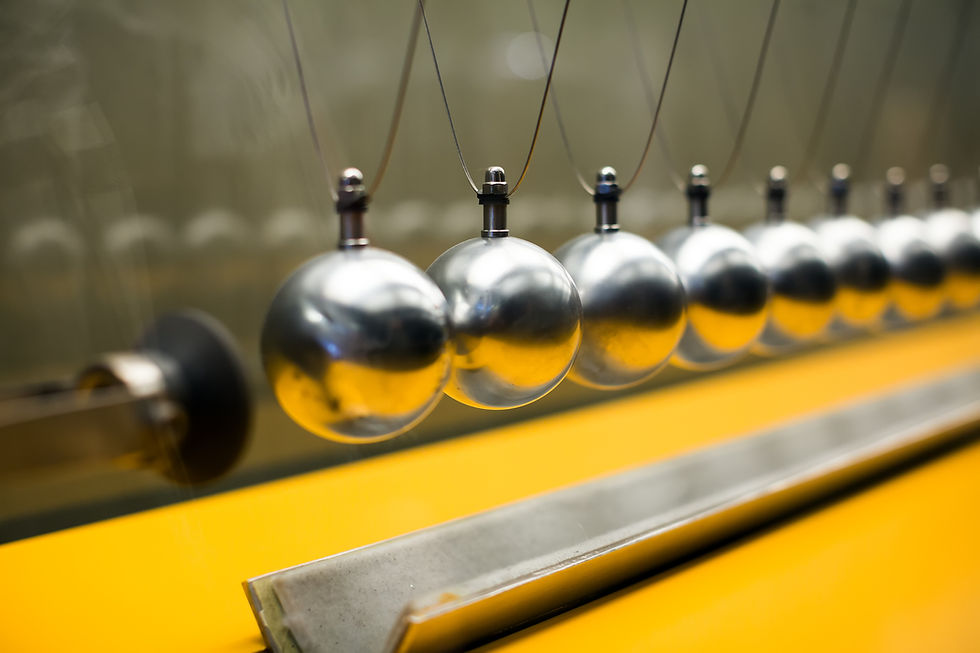So you've been in a car accident, part 2
- Rowan Everard
- Jul 18, 2023
- 3 min read
Earlier this month I accidentally wrote a whole blog post about how to navigate the car insurance claim system when I was trying to write this. You can find that guide here. Now let's turn to the no-fun physical experience of a motor vehicle accident (MVA), and how acupuncture and Chinese Medicine (CM) can help.
There are specific considerations that flow from a factor that we usually only see in car accidents: force. I'm not going to bust out my high school physics book, but mass X acceleration = force, and the only way that humans can really get up a lot of force on our own is by falling from a great height. Before cars, horses were a huge vector of injury for humans because they go fast, and thus the acceleration half of that equation gets bigger. But cars, and I'm not trying to shock anyone here, go a lot faster than horses. If they come to a sudden stop, all of the force that was propelling them forward is translated into the vehicle and everything inside of it, mainly you.

This is the reason that MVA injuries are so complicated and painful: that force is sent out into every part of a person's body, and it creates a unique kind of tissue problem. The fascia, which is the fine net of fiber that our muscles glides along, seizes up along with the muscles at the time of impact and becomes tight and almost scarred. This is part of what accounts for the long healing time for even minor-seeming injuries. These scar-tissue-like restrictions cause communication problems internally, as the body and nervous system struggle to get blood and other chemical signaling systems into the site of the injuries. All of that translates to pain.
This kind of pain can look like:
sciatica
low back pain
pain that refers from the upper back into the arms or chest
neck pain that causes headaches
The good news is, resolving those communication problems is what acupuncture excels at doing. By needling points near the injuries, but also in other parts of the body, we can help the whole system loosen up and reconnect. This is also quite helpful in addressing the other major post-accident experiences of anxiety, depression and insomnia. Whether the accident was relatively minor or a near-death experience, our bodies just didn't evolve to deal with that level of force. We react, very reasonably, by perceiving that we experienced something overwhelming and dangerous, and many people get stuck in a pattern of vigilance that cues further tightening of our muscles. Acupuncture can treat anxiety, depression, and PTSD symptoms effectively and safely by helping the body come back into a relaxed and integrated state.
In addition to regular acupuncture, there are several other techniques that I often use with MVA patients:

Cupping: using suction to gently lifting the muscle and fascia away from the body to bring blood flow back in, and break up knots in the connective tissue
Guasha: scraping with a smooth, flat-edged tool to break up knots in a more targeted way
Electrical stimulation: using low-level current from a TENS unit to stimulate acupuncture points

What I often find is that there is scar tissue around the nerve roots or pathways after a car accident, and because that scar tissue is in soft tissues like muscle and fascia it's very difficult to detect in diagnostic imaging. Breaking up that scar tissue and helping it reintegrate into the system takes pressure off the nerve and relieves the pain along the pathways.
Working with these kinds of injuries is usually a project. Depending on the seriousness of the accident, patients can expect to work with me 1-2 times a week for several weeks, or several months. During this time people experience steady improvement in pain, anxiety, and overall ability to function and get back to doing the things that they love. Our bodies may not have evolved to handle the force of a car accident, but our medicine has.
If you or someone you love has recently been in an accident, book a session with me and let's get you feeling better.




Comments